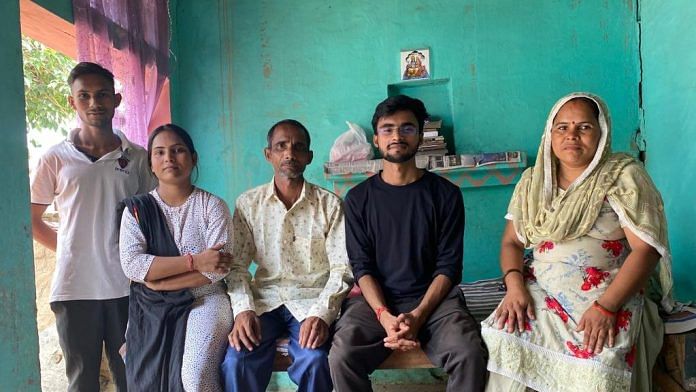Saidpur: He had just dipped his fingers into hot steaming rice in his Saidpur village home when the phone rang. “IRS Sahab, aapne UPSC clear kar liya hai,” said a friend, informing Muktendra Kumar about clearing the coveted civil service exam. This was the day he had been preparing furiously for over the past three years.
That day, 23 May, a wave of relief washed over Muktendra, the 23-year-old Dalit son of a manual labourer in Uttar Pradesh’s Bijnor district. His first thought was that his sister’s wedding would now be smooth, and the leaking roof could finally be fixed.
Muktendra has achieved the 819th rank in the Union Public Service Commission (UPSC) examination, making him eligible for an Indian Revenue Service (IRS) posting.
He is among a growing number of Indians using Hindi as their study medium to pass the Herculean UPSC exam in recent years, deepening the diversity of civil service entrants who are now coming from increasingly remote, rural, and disadvantaged backgrounds.
Ravi Sihag, who studied in Hindi, secured the 18th rank last year, making him the first candidate in Hindi to place in the top 25 in seven years. YouTube coaching classes have also made cracking the UPSC exam more affordable for aspirants like Muktendra. His father Satish Kumar occasionally works in an oil mill and transports bricks, and the family is sustained by free monthly government rice and wheat.
Now, the steady line of visitors to his home to congratulate and celebrate is just not thinning. Muktendra has become a status symbol not only in Saidpur’s Dalit community but the entire village.
“I have never eaten so many sweets in my life as I have these days, I don’t even know all these people who are coming,” says Muktendra, who cleared the exam on his second try.
But his goal doesn’t just stop at this newfound status. “It is very important to remove poverty, the kind of life we have lived is very difficult. A lot has to be done for the backward and for the women. I want to do this by joining the service,” he says.
“We come from a background where dreaming is a big thing,” he adds. “Earlier I only knew about SSC (Staff Selection Commission). But when I came to know about UPSC, I made it my goal.”
Also Read: An ‘affordable’ UPSC dream is taking off in small-town India. It can change the steel frame
Inspired by a leaking roof
Muktendra’s house in Saidpur, near Bijnor’s Noorpur City, is a short distance from the main road, but the pavement stops just short of his front door.
The neighbourhood is muddy and marred by clogged drains, and monkeys swing from the rooftops. One of them grabs a garment hanging on a clothesline and bolts, setting off an immediate flurry of activity.
Amid the hubbub, Muktendra emerges from his single-storey house and sits on a broken plastic chair outside his house.
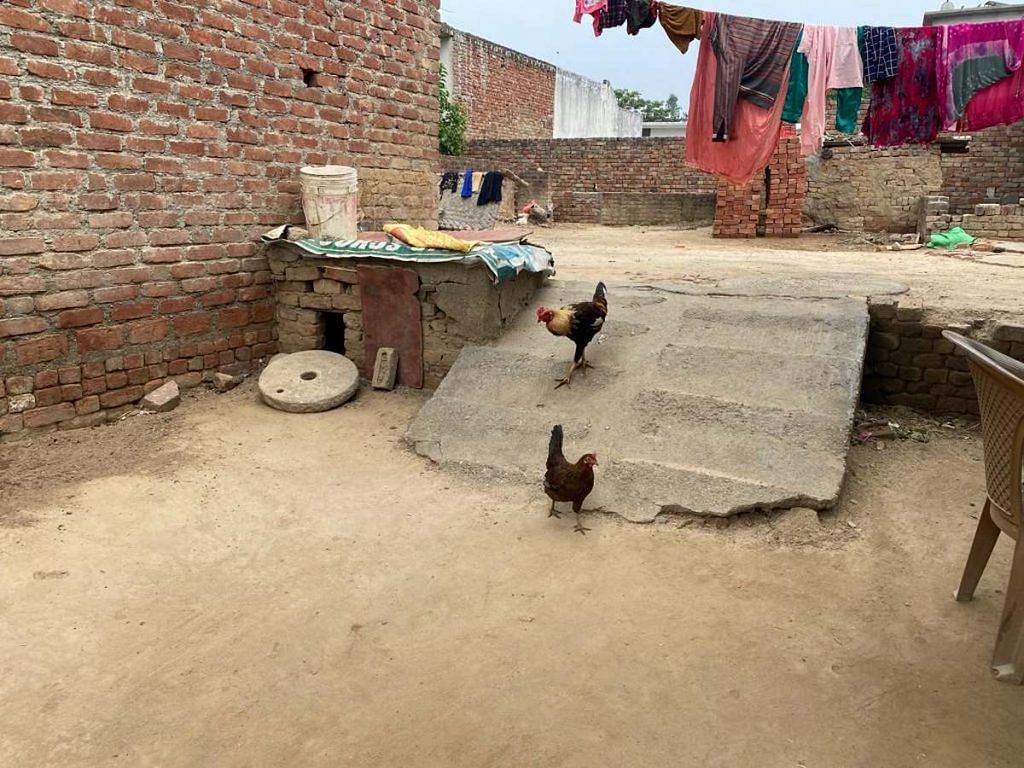
He says his modest surroundings strengthened his resolve to succeed.
“One night, it was raining and I saw my mother placing utensils on the floor to catch the water that was leaking from the kachha roof. That day, I decided I would change the condition of our house,” he recalls.
Muktendra isn’t the only UPSC candidate to have broken barriers of language and socioeconomic class this year. Overall, a total of 54 candidates from Hindi medium schools successfully cleared the exam.
Among these achievers, some come from modest UP families similar to Muktendra’s, including Divya Tanwar, Suraj Tiwari, and Saurabh, who secured the 105th, 917th, and 705th ranks respectively.
But Muktendra isn’t satisfied yet. His next aim, he says, is to get a higher rank and qualify for the Indian Administrative Service (IAS). Even after the results were declared, he stayed glued to his tiny study table.
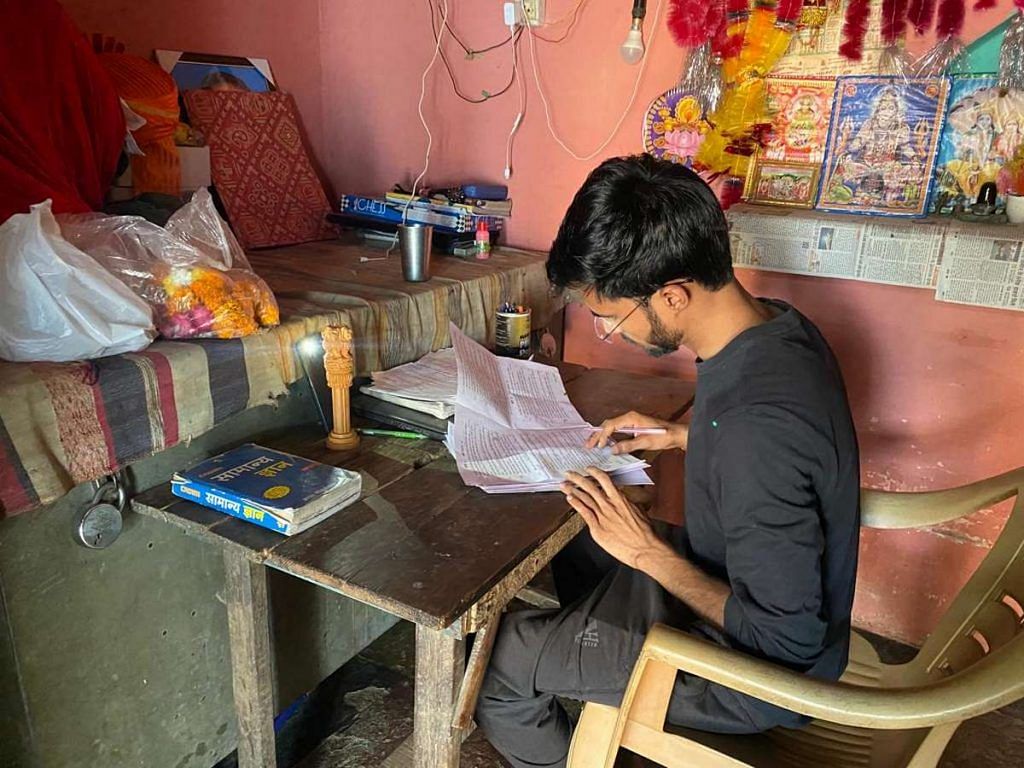
On 28 May, he gave the UPSC prelims in the hope of outdoing his earlier score. He was diligently cross-referencing the answer keys during ThePrint’ visit to his house last week.
His family members, neighbours, and even local politicians, meanwhile, are basking in pride.
A local sensation
When Muktendra’s result first came out, his family members celebrated quietly among themselves. Unlike in the case of many other successful UPSC candidates, there were no organised felicitation ceremonies or grand road shows for Muktendra.
However, when the news trickled to him, Dalit social worker Mangeshwar Kumar Balmiki decided to amplify Muktendra’s story.
“After seeing the UPSC result, my children told me that the name of this boy from our village is on the list. I then came to meet him and wrote about him on social media,” Balmiki says.
“I told the local media and made it viral in groups. If someone from our society has achieved success, it is our duty to tell them about it. I will also try to organise a felicitation ceremony,” he adds.
Since last week, relatives, relatives of relatives, villagers, and social workers have been pouring in to meet Muktendra.
Among them is Lakshmi, a distant cousin. Dressed in bright clothes, she has brought along her daughter and husband to congratulate Muktendra.
Arranging a small box of sweets and a marigold garland on a plate, she calls out to him.
“No one in our family has reached such a big post. This has caused so much excitement in my in-laws’ house,” Lakshmi says.
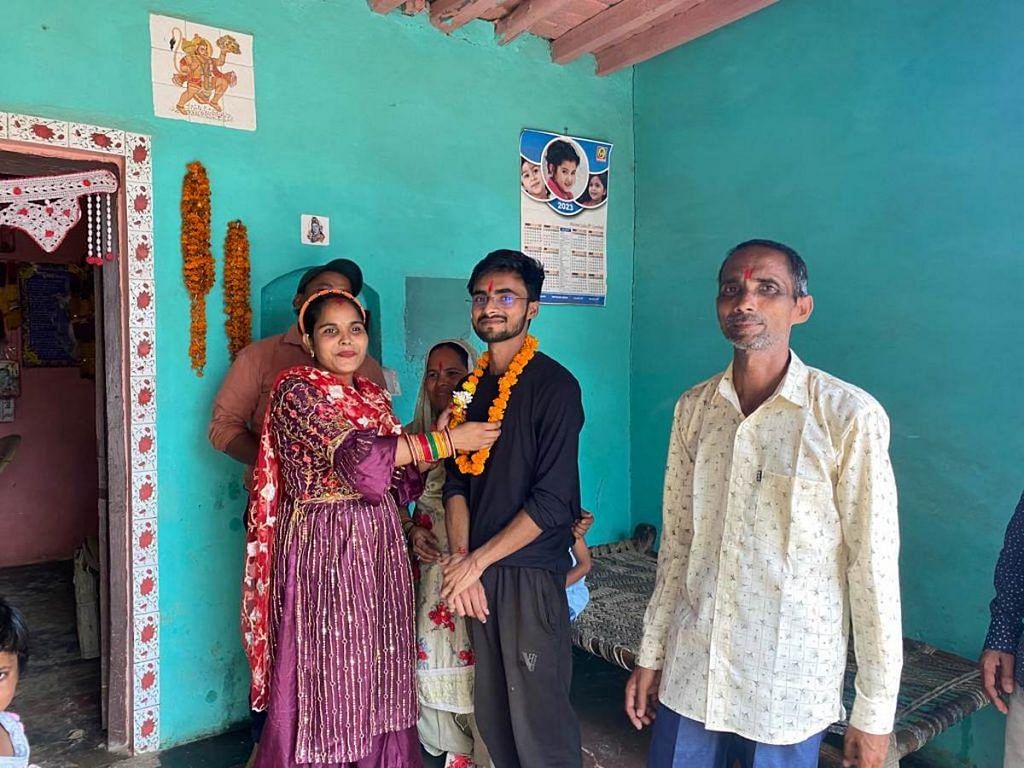
After applying a tika on Muktendra’s forehead, she puts garlands around the necks of all his family members one by one. Then, a man announces that the district BJP president, who belongs to the Balmiki Dalit community himself, is about to arrive.
The news creates a small commotion. Chairs are placed in the courtyard and the elders of the house gather around. “This is the first time a leader is coming to meet us,” says one of the guests.
Shortly thereafter, BJP leader Balmiki arrives, bearing a box of sweets, a diary, and a pen as gifts.
“For me, it is just like magic,” he says. “Even the children of the rich people in our society do not study, but this child has worked hard. For those who work hard, there are no shackles, no one can stop them.”
In Saidpur village, many people are hearing about Muktendra for the first time.
“It is a proud moment not only for our village but for the entire district, but we have never even seen that boy going out,” says resident Mahesh Singh. “He must have always been studying.”
Internet, YouTube, free tests
Muktendra’s educational journey began in the village government school, where he studied until Class 8. He then completed his schooling at a semi-private institute in the same village before enrolling in Saidpur’s Lakshya College for a Bachelor of Science degree.
In his second year of college, he started preparing for the SSC examination to qualify for a government job. But when he was attending a small private coaching centre, he came to know about the UPSC — a gateway to an even more promising and prestigious future.
However, coming from a household where it was difficult to make ends meet, Muktendra knew that UPSC coaching was out of bounds and that even buying books would be a challenge.
“I first thought of how I could cover the syllabus with a minimum number of books. I bought my books with the Rs 7,400 scholarship I got from the college,” says Muktendra.
And instead of joining a coaching class, he relied on the internet, YouTube, and free tests offered by coaching centres to help him prepare.
Muktendra credits his success to his parents. His mother works as a labourer but she would still ensure that all his study needs were taken care of, he says.
“I never had to leave the house. If I needed even a pen, my mother or sister would go out and get supplies for me,” Muktendra adds.
Dressed in a green salwar suit, Muktendra’s mother Kavita is busy welcoming everyone who comes to their house. She tells all the visitors about Muktendra’s dedication.
“My son has worked very hard, he studied day and night. When it didn’t happen the first time, I complained a lot to god, but this time, our wishes came true,” she says.
Muktendra’s father Satish recalls how he would see his son studying every time he left the house as well as every time he returned.
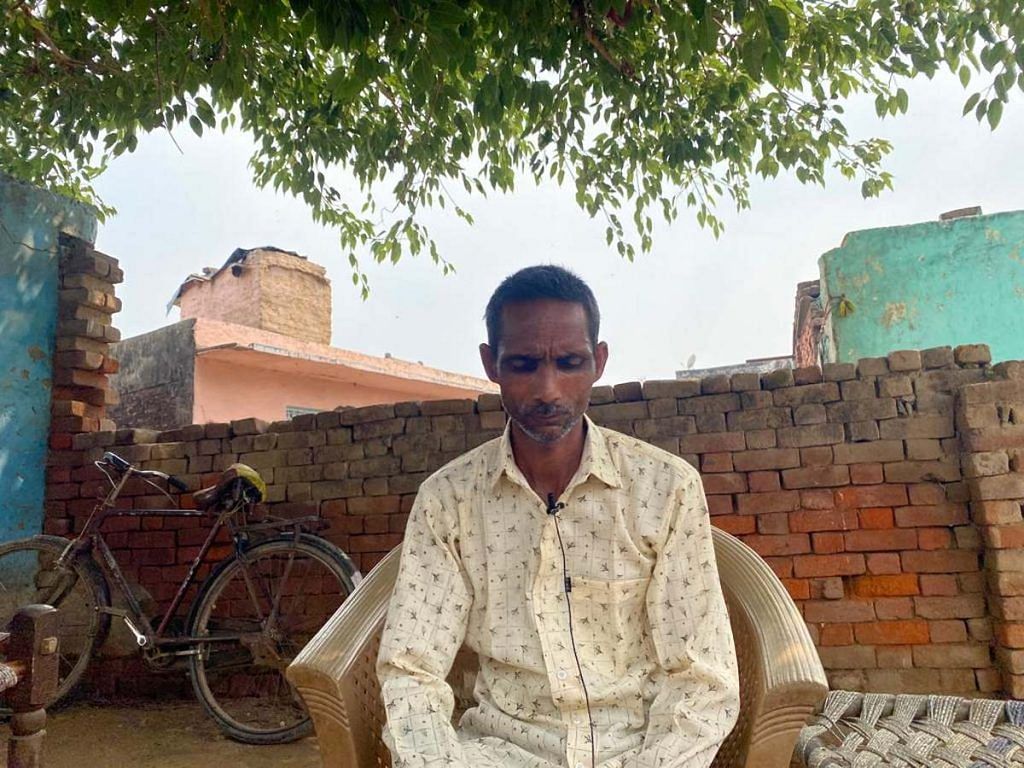
“My son has made us proud. The whole village is congratulating us. People who didn’t greet us earlier are also coming and talking to us today,” Satish says.
But failure was part of the journey too. In his first UPSC try, Muktendra made it to the interview stage, but could not secure a spot on the final list. He was disappointed, but resumed his studies the very next day and cleared the prelims — held just five days after the previous year’s results. This time, he was successful.
Next goal: IAS
The rank Muktendra has achieved will secure him a posting in the IRS, but his ultimate goal is to join the IAS.
“I am very happy with the result that has come now, but I am trying once again for my goal of becoming an IAS officer,” he says.
Inside the one-room house, the wall facing the door features a shrine and the colourful garlands that Muktendra wore on the day of the results.
But his focus remains squarely on his worn old wooden study table and plastic chair.
There has been no power in the house for the last hour, but Muktendra says such inconveniences are no bar to his studies.
“All this will be difficult for people but I am used to it. It happens many times, but I will not stop studying,” he says.
He is currently focused on learning from past mistakes so he can do better on his next try. He has written the prelims and is now concentrating on preparing for the interview round.
“When I saw my marksheet, I realised that there are some places where I can do better, so in this endeavour I will try to do them. And I am sure that I will definitely achieve my goal,” he says.
In his first attempt, Muktendra got 124 marks in the interview. This time, he got 150 marks. “I still need to work on my confidence, but the interview was interesting, I was asked a lot of good questions,” he says.
In his detailed application form for the UPSC exam, Muktendra had listed watching movies as one of his hobbies. One of his interviewers drew on this to ask him questions.
“I was asked to talk about movies made on women’s empowerment, so I took the name of Dangal. After that, I was asked to recite one of its famous dialogues,” Muktendra recalls.
As his answer, he picked a message of gender equality from the movie: “Mhari chhoriyan, chhoron se kam hain ke (Are our girls any less than our boys)?”
(Edited by Asavari Singh)
Also Read: ‘Not a sob story’: UPSC 2nd-ranker put off by focus on dad’s death, says ‘it doesn’t define me’


